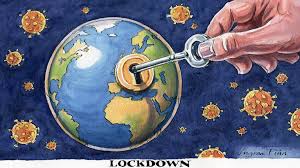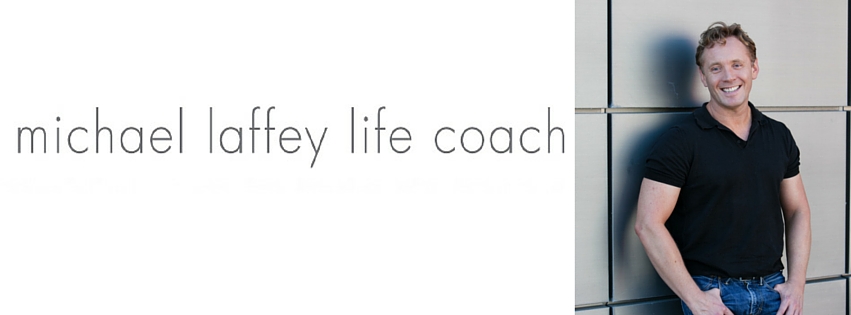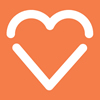What I Have Learnt from 2020

We’ve all been marked and stretched by the events of 2020. I feel that it would be better if we didn’t rush to live as we did before. It won’t fit and it will feel strange if we do.
Covid-19 and 2020 are more than a once in a lifetime wake up call. I’d really like us all to take something positive from what we’ve experienced. Strong things are forged in the fire. So let’s learn from 2020 and move forward, better & stronger.
These are my lessons. These are the things I’ve either re-connected with or have realised how valuable they are to me. Much of it is “basic common sense” which I, as much as anyone, had lost touch with because, well, we’re too busy being busy or being cleverer than the advice we’ve been hearing all along. The time for wellbeing hacking is over. Time to invest properly.
- Don’t touch tech or read the daily news until you’ve checked in with yourself first. Boil the kettle. Make tea, make coffee etc and go straight to #2.
- When I go down to the beach each morning, the seaweed is in a different place. That means my headspace can be, too. Green and blue spaces are vital for our wellbeing. Getting outside relieves the pressure of what’s rattling around in our heads. We noticeably breath deeper and our shoulders drops, helping us to feel more relaxed. Sea-scapes, green-scapes, touching or watching nature, sky, horizons… they each bring a greater perspective to our concerns and our purpose. They help us to let go of our troubles for a while. Whatever you can access; a view from a window, a balcony, a garden, a walk to sea or country places… do it. Even people with big houses have felt trapped. A room is a room. Space is a healer by changing our perspective.
- Exercise has finally found its place as part of an overall wellbeing strategy. Yada Yada. Yes exercise. But it has come to the fore again. It’s positive physical effects are an important preventative for anyone hit by Covid. Exercise is also now accepted as important for our mental and emotional health. We know this. No harm in knowing it again.
- Make a ritual or habit out of 1, 2 & 3. Motivation comes as a result of them. Motivation is not the pre-requisite to start. It is not a genie to conjur. It’s a ritual or habit based outcome. Journaling helps when making decisions to change our habits and routines. Measure what matters but please don’t judge. Observe what’s going on in terms of how habits become day to day activities. All bad and good habits are embedded and loaded with why we do what we do. Simply focus on today. That’s why I like the term ritual. It conveys a slower and more meaningful act.
- Having a hobby or creative outlet that is absorbing and immerses you in a flow state; cooking better, craft or artisan hobbies of all sorts, gardening, tending an allotment, learning an instrument, DJing – you get the drift. Enjoy using your manual and cerebral self, being lost in the flow and the time they take.
- I’ve re-found how much I love music and how different genres speak to different needs and moods. Music is a language that can influence our emotional space. Think of the beats and how you feel when immersed in music for sports, clubs, spirituality or relaxation.
- When working from home (WFH) create work and life boundaries. In current times, you are inviting work into your home. When the WFH day is done, shut down the PC/Laptop and close the door on it if you can. If you are working on your own devices or you are co-opting space, at the very minimum, stop receiving work account notifications. Also create a buffer zone between starting/finishing work. Get into the habit of dressing appropriately for work time (many workplaces are good with smart casual) and changing into something else when the work day is over. Some people have replicated a commute time. You get the point. I dress like I did for the office. Before & after work, I usually prep something in the kitchen, do some other project (#5) and hit #s 2 & 3.
- What a house of cards life was pre-2020. How many people were double-jobbing to make ends mate. So many people were one monthly salary from increasing debt and with little to no savings. Organisations had only three months reserves. People have been existing for too long while made to feel that they were the problem by not managing. We need to dig deep and re-engage with what enables people to thrive beyond pay-cheque to pay-cheque. What has shone bright is the awareness within local communities and the support they have provided to ensure that anyone can eat and support their families and not be stigmatised by the wider problems causing an inability to eat and feed a family. This is Dickensian and nauseatingly wrong in the 21st century.
- Anxiety and stress lower people’s cognitive abilities. Many of the factors in #8 contribute to this. Impair people’s freedoms and choices and you impair their betterment.
- Productivity went up. Companies and institutions learnt that people care about their work and delivered whatever it took. The lesson was greater for the employer than the employee in most cases.
- Moral currency. Actions matching words. deceived by body-language. I do hope we’ve learnt from what we’ve seen through the microscope of politics and politicians.
- I embraced the Green Recovery and Active Travelling by ditching the car and taking up cycling. It was a joy to re-engage with my local area in this way; making a greener local contribution. Then the cycle lanes were dropped one safe cycling lane at a time. In fairness, the implementation of many pop-up cycle lanes was poorly deployed in most cases. Rather than adapt and encourage a greener local travel policy it’s been saddening to see cycle lanes removed. Most journeys are less than 10 miles a day and 80% are under 2 miles. Please! Let’s get wise.
- We’ve learnt that we do have time for what matters. Stop being immediate with responses and filling time by second screening. Don’t over-commit or make up for other people’s 11th hour behaviours. They are empty calories and a constant distraction from being able to process what’s important and happening to us. Work and live at a pace that’s good for you. I’ve learnt being slower is my pace. Allow the day to settle and make sense. It’s stabilising.
- Tech connects us and it messes with us. Be wilful about how you use it. Don’t be mindless. Zoom, Team, Skype have all been great to connect visually. Using them has been a learning curve and draining. Combine with emails, text messages and multiple work and personal WhatsApp groups. This is all great but also distracting. I am wary of people who require constant tech feedback. They are removing you from your space to theirs. Think why. When it’s necessary you know.
- Trust and value 1 or 2 key people to keep you sane and on-track. We don’t need as many people to support us as most people believe. Do not confuse networks with valued personal connections.
- Small gestures are so meaningful and probably better received than grand ones on a wellbeing level. People have shown that a card, a call, a surprise parcel or homemade cake have been as valuable in someone feeling valued as a new car or holiday. We’ve learnt that our time investment matters in our connections.
RELATED
Annual Reflection | The Year That Was 2020


